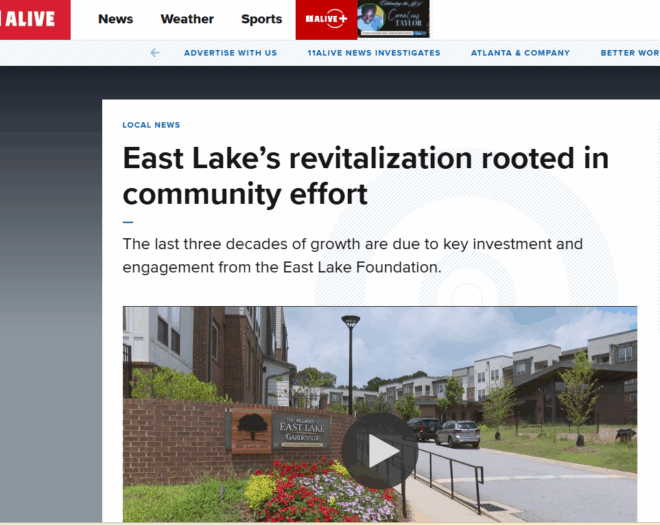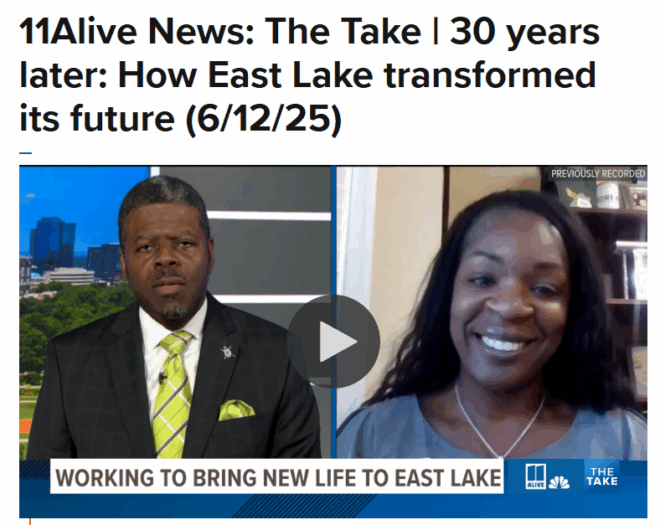When the East Lake Foundation was founded in 1995, one of the first actions taken to revitalize the community was to tear down East Lake Meadows public housing development to make way for The Villages of East Lake, a mixed-income housing development made up of half government-subsidized housing and half market-rate apartments and townhomes. Proponents of mixed-income housing believe the higher tax base of the market-rate residents entice retail, restaurants and other businesses to the neighborhood, turning it from an area of concentrated poverty to an economically stable community.
Mixed-income housing has worked for East Lake. In 1995, only 13 percent of the residents a East Lake Meadows were employed. Today, everyone who lives in subsidized units at The Villages of East Lake either has a full-time job or is working toward one. The higher tax base has brought businesses such as Publix, Suntrust and Wells Fargo to the neighborhood. The violent crime rate has decreased by 97 percent.
The success of mixed-income housing isn’t based on new construction and new neighbors. Economic stability is an ongoing effort to connect residents across income levels.
The East Lake Foundation created the Resident and Community Support Program (RCSP) at The Villages of East Lake, a combination of community engagement and economic stability programs. RCSP provides career assessment and guidance, assistance with resume writing, computer skills and job training, and financial coaching. Community programs include block parties, healthy living seminars and access to community partners to improve the lives of residents. In 2016, more than 600 residents engaged in 57 economic workshops ranging from financial education, entrepreneurship, home owner education, and career coaching. Thirty-six residents participated in the new homebuyer education series.
Intentional services through the RCSP are essential for breaking the cycle of poverty. And it doesn’t take much from donors and supporters of the Foundation to continue the success of this mixed-income community. Just $10 per month provides books and college education resources to residents; $25 per month provides GED course materials and exam fees.
Your support can assist those who need help the most move up (and sometimes out) while keeping homes available for another generation of residents trying to change their social and economic status.




